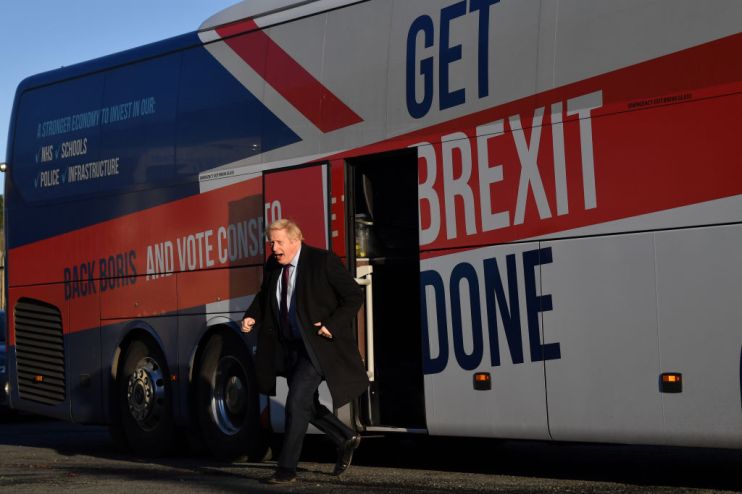More services and hydrogen buses in Boris’ £3bn bus ‘revolution’

Prime Minister Boris Johnson has today unveiled £3bn of funding to make buses the country’s “transport of choice”.
As part of the “National Bus Strategy”, the government has pledged to deliver 4,000 new British-built electric or hydrogen buses.
It will also begin a consultation on ending the sale of diesel buses as part of the country’s push towards net zero.
Under the plan, the government will simplify existing fares structures. It will introduce a price cap, meaning that passengers can take as many buses as they want a day without prices spiralling.
The new ticketing system will be designed to integrate with rail services, meaning people can easily transition between the two modes of transport.
It will also build hundreds of miles of new bus lanes, and increase the number of services in the evening and at the weekend.
On main routes, it wants local councils and authorities to put in place “turn up and go” services, greatly increasing the frequency of buses.
As part of the plans, councils will be expected to work closely with bus companies in “enhanced partnerships” to put the changes in place.
Ministers have handed the bus industry nearly £700m over the last year to keep services running amid a plunge in passengers due to the pandemic.
Before the Open: Get the jump on the markets with our early morning newsletter
In recent days, FTSE bus company Go-Ahead Group’s chief executive told City A.M. that the government needed to put public transport at the heart and centre of its climate change push.
“If the government wants a green recovery from the pandemic and to hit its net zero targets, it needs to put more emphasis on public transport”, David Brown said.
Ministers appear to have heeded the wishes. Johnson, a well-known bus aficionado, said:
“Buses are lifelines and liberators, connecting people to jobs they couldn’t otherwise take, driving pensioners and young people to see their friends, sustaining town centres and protecting the environment.
“As we build back from the pandemic, better buses will be one of our first acts of levelling-up.
“Just as they did in London, our reforms will make buses the transport of choice, reducing the number of car journeys and improving quality of life for millions.”
The chief executive of bus lobby the Confederation of Passenger Transport, Graham Vidler, welcomed the plan.
“Today’s strategy is a huge opportunity for a step-change in bus use, with a major switch away from cars driving a green economic recovery. The strategy must now be matched by local delivery and consistent policy across government to put buses at the heart of transport networks”, he said.
“It is great to see government sharing our ambitious plans to deliver more frequent and comprehensive bus networks, building on private sector investment and in collaboration with local authorities.”
Martin Griffiths, chief executive of bus firm Stagecoach, said: “We welcome the ambition in the government’s new bus strategy.
“For too long, the power of buses to transform local communities and local people’s lives has been overlooked.
“The new bus strategy provides an opportunity for all partners – operators, national government and local authorities – to work together to harness the huge potential of the bus to help tackle climate change, deliver better air quality in our towns and cities, secure improved mobility for local people and support a sustainable economic recovery for the country.”